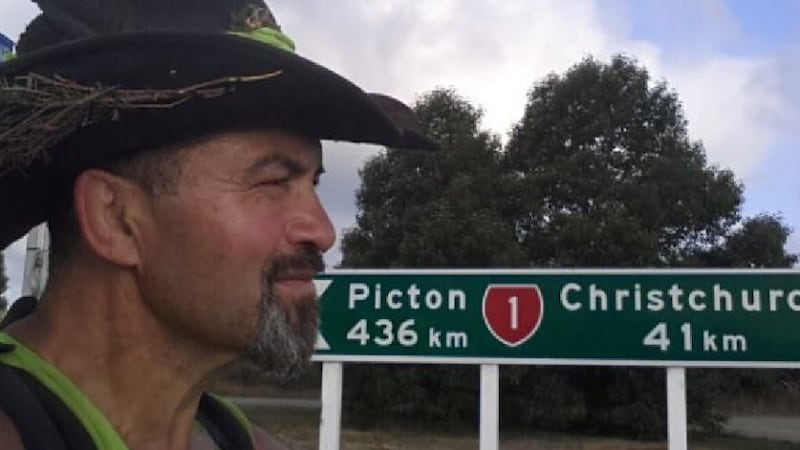A Ngāti Porou man has walked more than 2000km from the top of New Zealand to the bottom to rally the public regarding the deteriorating state of the country’s waterways.
Hirini Reedy left Cape Reinga on the 23rd of September and finished his hikoi at Bluff on New Years Eve.
Reedy decided to start his hikoi after an experience he had visiting lake Tūtira in Hawke's Bay last year.
“I smelt a stench. In the morning when I went down to collect water to clean my utensils I saw green water and then I noticed a bluey 1080 leach going into the water," he says.
“I saw this black swan with wings outspread gazing into it and I said ‘you poor creature. You’re having to live in this’.”
According to environmental group H2Whoa, 62 percent of New Zealand’s waterways are unsafe to swim in due to pollution and 44 percent of New Zealand lakes are defined as polluted for recreation.
“There is degradation of the water. You can smell it. You can see it. You can hear it,” says Reedy.
During his 100 day hikoi, the waterways where he saw the most ‘trauma’ were in areas affected by farming including north of Auckland, Waikato, the upper Whananui-Tongariro area, Horowhenua, Canterbury and Otago.
“You can see the waterways looking tired. They’re slow running. They look brown. They look unhealthy. They’ve got signs next to them saying ‘swimming prohibited’, ‘health risk’,” says Reedy.
Increases in E.coli levels are a major issue according to the latest report from the Ministry for the Environment and Stats NZ about the state of fresh water.
Researchers say E.coli levels are 22 times higher in urban areas and 9.5 times higher in pastoral rivers compared with rivers in native forest areas.
According to the report, animal or human faeces in fresh water can increase the risk of illness for swimmers in an area.
When E.coli is detected in rivers or lakes, it indicates that faecal matter is present in fresh water.
Reedy says certain industries like dairy farming need to take responsibility.
“Councils need to review the way we take water and change the resource consents and thirdly we need to look at the whole issue around water exporting.”
Reedy says he is now working on a new project to assemble a group of rangatahi who are passionate about protecting the wai.
“We must create our own new battalions of elite guardians who uphold the honour of the people, serve the wairua while protecting the natural ecosystems upon which life depends.”

